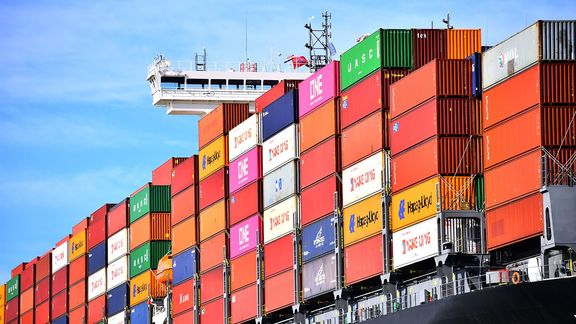Throughput in port of Rotterdam increases by 3.0% in first quarter of 2021
Growth is mainly found in biomass, coal, mineral oil products and TEU containers
The volume of freight handled in the port of Rotterdam in the first quarter of this year totalled 115.8 million tonnes. This constitutes a 3.0% increase over the same period last year. As such, the port of Rotterdam has set a new step in its recovery from the decrease in throughput in 2020 as a consequence of the COVID-19 pandemic.

The most pronounced increase could be observed in the volumes of biomass (+36.7%), coal (+25.2%) and mineral oil products (+19.7%) put through Rotterdam. The port’s terminals also handled a substantially higher number of containers (+4.5%). Volumes declined in the segments LNG (-26.8%), agribulk (-8.6%) and other liquid bulk (-2.8%).
Biomass
Biomass throughput rose as a result of a strong increase in the volume of biomass co-fired at the Amer 9 power station in Geertruidenberg. Within the coal segment, we saw a strong demand for thermal coal in response to the cold winter. The demand for coke also picked up, which had a positive impact on coal throughput. Break bulk flows increased thanks to the growing demand for non-ferro metals and steel.
Oil products
Oil product volumes at the Rotterdam terminals mainly increased thanks to stronger inbound and outbound flows of fuel oil and gas oil/diesel oil. Total throughput was significantly boosted by the loading of two VLCCs with fuel oil destined for Singapore, for example.
Containers
In the containers segment, the number of TEUs handled rose by 4.5%. When calculated on the basis of this standard unit, container volumes rose as a result of stronger demand for consumer goods. Measured in tonnes, container throughput actually showed a modest decline (-0.7%), which can be explained to an extent by on the one hand, an increase in the number of empty containers, and on the other hand, by a lower average weight per loaded unit.
LNG
The decline in LNG volumes is a result of decreased import flows. Higher price levels in Asia led to a growth in LNG transport to that market. The decrease in agri-bulk throughput can be attributed to ample stocks. Within the other liquid bulk segment, one could observe a modest increase in the throughput of biofuels. Vegetable bulk and chemical volumes, in contrast, decreased in Q1.
Ro-Ro volumes in the first quarter were at normal levels, showing an increase of +3.4%. This is somewhat remarkable in view of the new post-Brexit situation, which introduced new customs formalities as of 1 January.
Allard Castelein, CEO of the Port of Rotterdam Authority: ‘Generally speaking, the increased throughput volume in the first quarter paints a positive picture. Nevertheless, these remain turbulent times for companies working in trade and logistics. At this point, the main challenge we are set before is handling the aftermath of the Suez blockage in terms of logistics. The Port of Rotterdam Authority is doing its utmost to support its clients – among other things by offering real-time surveys of ETAs at all the port’s deep sea terminals.’